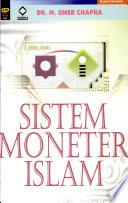
Islam, sosialisme & kapitalisme
Essays on Islam, socialism, and capitalism; collection of articles.
Essays on Islam, socialism, and capitalism; collection of articles.
Essays on Islam, socialism, and capitalism; collection of articles.
A collection of 14 contributions which explore a variety of issues in the application of information technologies to higher education. Hanna (educational communications, U. of Wisconsin) has selected
Selengkapnya...
Indonesian law on civil procedure.
The aftermath of Japan's 1945 military defeat left its public institutions in a state of deep crisis; virtually every major source of state legitimacy was seriously damaged or wholly remade by the pos
Selengkapnya...

Essays on Islam, socialism, and capitalism; collection of articles.
Essays on Islam, socialism, and capitalism; collection of articles.

A collection of 14 contributions which explore a variety of issues in the application of information technologies to higher education. Hanna (educational communications, U. of Wisconsin) has selected the chapters to address such themes as the emergence of a global learning society; changing patterns of individual, organizational, and social needs; the challenges and possibilities of advanced technologies; transformational change in higher education on a global scale; and the importance of ethics and equity of access as elements that must drive decision making and leadership at an organizational level. Annotation copyrighted by Book News, Inc., Portland, OR.
Hanna (educational communications, U. of Wisconsin) has selected the chapters to address such themes as the emergence of a global learning society; changing patterns of individual, organizational, and social needs; the challenges and ...

Indonesian law on civil procedure.
Indonesian law on civil procedure.





The aftermath of Japan's 1945 military defeat left its public institutions in a state of deep crisis; virtually every major source of state legitimacy was seriously damaged or wholly remade by the postwar occupation. Between 1960 and 1990, however, these institutions renewed their strength, taking on legitimacy that erased virtually all traces of their postwar instability.How did this transformation come about? This is the question Ellis S. Krauss ponders in Broadcasting Politics in Japan; his answer focuses on the role played by the Japanese mass media and in particular by Japan's national broadcaster, NHK. Since the 1960s, television has been a fixture of the Japanese household, and NHK's TV news has until very recently been the dominant, and most trusted, source of political information for the Japanese citizen. NHK's news style is distinctive among the broadcasting systems of industrialized countries; it emphasizes facts over interpretation and gives unusual priority to coverage of the national bureaucracy. Krauss argues that this approach is not simply a reflection of Japanese culture, but a result of the organization and processes of NHK and their relationship with the state. These factors had profound consequences for the state's postwar re-legitimization, while the commercial networks' recent challenge to NHK has helped engender the wave of cynicism currently faced by the state. Krauss guides the reader through the complex interactions among politics, media organizations, and Japanese journalism to demonstrate how NHK television news became a shaper of Japan's political world, rather than simply a lens through which to view it.
This is the question Ellis S. Krauss ponders in Broadcasting Politics in Japan; his answer focuses on the role played by the Japanese mass media and in particular by Japan's national broadcaster, NHK.



... tidak mengalami nasib demikian , tetapi sungguh - sungguh tampil sebagai
suatu kekuatan ampuh dalam pemikiran modern , termasuk dalam psikologi dan
psikiatri , disebabkan karena eksistensialisme memiliki suatu tradisi kokoh 171
VII.




















